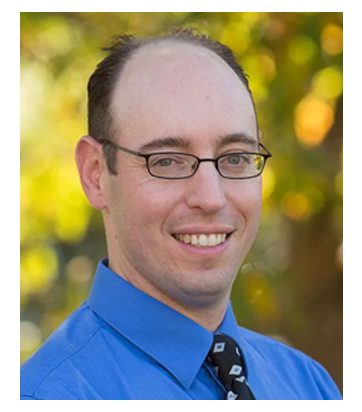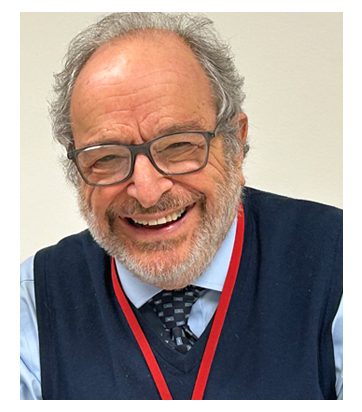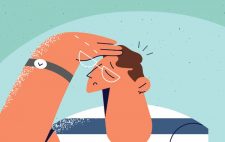What ADHD looks like in adults
Forget the stereotype of the restless, blurting-out-in-class kid. In adults, ADHD can be quieter, but just as disruptive.

Alex Strauss, MD
“Chronic disorganization, struggles with time management, difficulty sustaining attention, those are the patterns we often see,” says Alex Strauss, MD, a psychiatrist with Centra in Marlton. “That might mean missing details at work, losing focus in conversations or pushing tasks to the last minute.”
Impulsivity is another sign that can get overlooked. “It can show up as quitting a job without a plan, ending a relationship suddenly or making big decisions without thinking through the consequences,” adds Anthony Rostain, MD, Chief and Chair of the Department of Psychiatry at Cooper University Health Care.
Strauss notes that many adults have heard the same criticism for years: You’re so bright, but you’re not living up to your potential. “They got by in school because they were smart enough to compensate.” he says, “But in college or at work, the demands increased, and the cracks started to show.”
For some, the hyperactivity is still there, but it’s more subtle than in childhood. “Adults may choose careers that allow them to move around, because sitting in a cubicle all day feels impossible,” Strauss explains. “Others tap their feet, fidget in meetings or multitask constantly to manage their restlessness.”
Why seek a diagnosis later in life

Anthony Rostain, MD
The realization often starts close to home. “A parent will hear their child’s symptoms described and think, “Wait a second, that was me growing up,’” says Strauss.
Often, the clues were there in childhood but overlooked. “Teachers might have suggested an evaluation, but parents didn’t believe in that at the time,” he says. “If you were quiet and doing just enough to get by, no one thought to look deeper.”
The tipping point often comes years later, during a crisis. “It might be losing a job, failing a college course or a relationship ending,” Strauss says. “Something happens that makes it clear their old ways of coping aren’t working anymore.”
Awareness that ADHD affects adults has been building for years, says Rostain. “What’s changed is people’s willingness to talk about it and seek help,” he says. “As more people hear about friends or colleagues being diagnosed, they start to recognize those patterns in themselves.”
Often, women receiving a diagnosis far outnumber men. “Some of that may be because women are more likely to seek help when something feels off,” Rostain says. “But it’s also possible that hormonal changes later in life make ADHD symptoms more obvious, which prompts more women to get evaluated.”
Estrogen, the primary female sex hormone, indirectly affects how the brain regulates attention and mood, Rostain explains. “During perimenopause and menopause, when estrogen levels drop, those fluctuations can make symptoms that were once manageable much more noticeable.”
How it’s diagnosed
There’s no single blood test or brain scan that can confirm an ADHD diagnosis. Instead, doctors piece together a detailed history and look for patterns.
“We look for symptoms that have been present since childhood and that cause problems in more than one setting: at work, at home, in relationships,” says Rostain. “We also need to rule out other explanations, because trouble focusing can be caused by anxiety, depression, thyroid problems or even sleep disorders like sleep apnea. And it’s hardly ever just ADHD. These conditions often occur together. If you don’t address them at the same time, you’re not going to see the best results.”
Strauss says that even for patients who did well in school, childhood history matters. “I ask why certain decisions were made – a change of schools, a smaller class size – because those can be clues,” he says. “Even if academics were fine, there may have been hidden struggles that never got addressed.”
More than medication
For many adults, treatment includes medication. But that’s only part of the plan.
“Medication can help with focus and attention, but it doesn’t automatically fix planning, organization or follow-through,” Strauss says. “It’s always a process of figuring out what works best for each person.”
Rostain says healthy routines are a critical part of treatment.
“Sleep, exercise and good nutrition directly affect brain function,” he says. “For ADHD, we need to build strategies that make these things happen consistently because without that foundation, other treatments won’t be as effective.”
He also stresses the importance of addressing the emotional side of a late diagnosis. “A lot of adults who come in later in life have internalized a lifetime of criticism,” Rostain says. “They’ve been told they’re lazy or not trying hard enough. Part of therapy is helping them see these as symptoms of a condition, not character flaws.”
Treatment also means working with – not against – the way the ADHD brain operates. “People with ADHD have more difficulty sticking with boring, repetitive tasks than the average person,” he says. “We use strategies to make those tasks more engaging or create systems – like digital reminders, task-management apps or timers – that make follow-through easier.”
That shift in perspective can also open the door to building on strengths often linked to ADHD, such as creativity, high energy and problem-solving under pressure.
“We work with people to lean into those strengths and develop practical systems for the things they don’t enjoy,” Rostain says, “so they can still get them done without burning out.”














